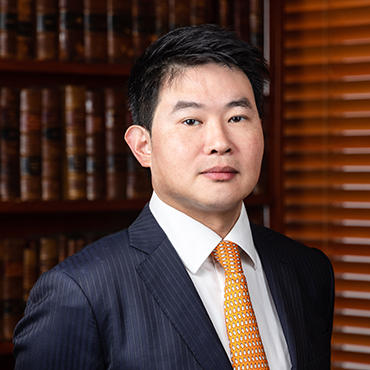Secretary for Justice v Shum Lester [2022] 2 HKLRD 744, [2022] HKCFI 1015 (Albert NB Wong)
Albert Wong appeared for the Defendant in Secretary for Justice v Shum Lester [2022] 2 HKLRD 744, [2022] HKCFI 1015.
D, a District Councillor at the material time, posted an article on his Facebook account (the Article) and published the same on Inmediahk, an online media website. The Article contained allegations that the Police committed murder of a named person and called on readers to “take revenge” against the Police, thereby breaching an injunction granted to the Secretary for Justice (the SJ) restraining inter alia any persons from unlawfully and wilfully: (i) disseminating, circulating, publishing or re-publishing on any internet-based platform or medium any material or information that promotes, encourages or incites the use or threat of violence, intended or likely to cause bodily injury or property damage; (ii) assisting, causing, counselling, procuring, instigating, inciting, aiding, abetting or authorising others to commit any of the aforesaid acts (the Incitement Injunction). Upon discovering the Article, the Department of Justice issued a letter to D and Inmediahk pointing out the Article was, on its face, in breach of the Incitement Injunction. Inmediahk immediately deleted the Article from its website whereas D only removed the Article from his Facebook account after he became aware that the SJ had brought committal proceedings against him. The proceedings were brought 15 months after the discovery of the breach in question. This was the sentencing hearing following D’s admission of liability for the contempt.
Held, sentencing D to an immediate custodial sentence of 6 weeks and ordering D to pay a contribution to the SJ’s costs in the sum of $25,000, that:
- (1) The Court was entitled to expect proceedings to be brought timeously in events of clear breaches so that the Court could enforce its order through contempt proceedings and orders for committal where necessary. The delay in bringing proceedings frustrated the ability of the Court to police its own orders (Secretary for Justice v Sung Ho Tak Edward [2022] 1 HKLRD 779 applied). (see para.28.)
- (2) Sentencing guidance for contempt of the former “Doxxing Injunction” was applicable. Inciting violence could be said to be more serious than doxxing as the threat posed by the former is more direct, explicit and immediate (Secretary for Justice v Chan Oi Yau Riyo [2020] 3 HKLRD 494, Secretary for Justice v Cheng Lai King [2020] 5 HKLRD 356, Secretary for Justice v Chan Kin Chung [2021] 1 HKLRD 563, Secretary for Justice v Sung Ho Tak Edward [2022] 1 HKLRD 779 applied). (See paras.48 – 50.)
- (3) The distinction between a contemnor who appeared enthusiastic for the result of his incitement and one who vented in the heat of the moment should not be taken too far. The Court was concerned not only with the subjective intent but also the objective potential or likely effect of the words used (Secretary for Justice v Sung Ho Tak Edward [2022] 1 HKLRD 779 applied). (See para.51.)
- (4) The Court could take into account factors beside the degree of culpability such as: (i) the contemnor’s personal circumstances; (ii) the effect of the contempt on the administration of justice; (iii) the need to deter future or repeated contempt; (iv) the absence or presence of prior conviction for contempt; (v) the contemnor’s financial means; (vi) whether the contemnor had exhibited genuine contrition and made a full and ample apology; and (vii) whether the conduct was sufficiently serious to warrant the imposition of a term of imprisonment to arrive at a sufficient and proportionate sentence. (See paras.52 – 53.)
- (5) The appropriate starting point for breach of the Incitement Injunction was an immediate custodial sentence, perhaps measured in months. In the circumstances, an immediate custodial sentence of 6 weeks was imposed. This took into account, inter alia, that: (i) the Article clearly incited hatred against the Police and the violence promoted was both severe and specific; (ii) there was no early recognition of the wrong or attempt to limit its effect, although D was now genuinely remorseful and had made a genuine apology to the Court, backed up by a clear express disavowal of any encouragement of violence; (iii) although D became a District Councillor to genuinely serve the community rather than just for his own aggrandisement, his role as a public figure did mean he had greater responsibility; and (iv) enforcement steps which were considered necessary, appropriate and proportionate if taken within reasonable time were significantly delayed which was to be reflected in the length, but not the nature, of the sanction imposed (See paras.49, 74 – 83.)
[The above is excerpted from the headnote to the report in HKLRD.]


